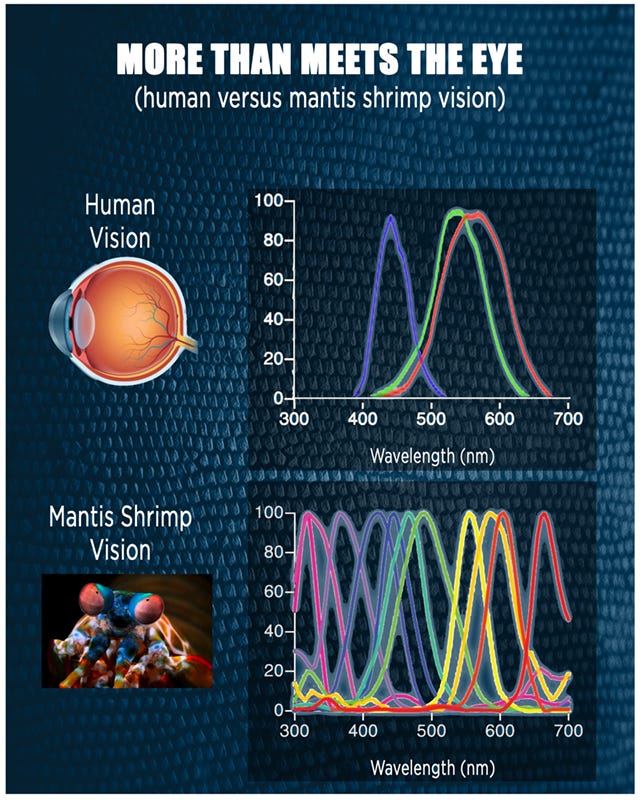Cosmic Conversations: The Observer, The Not So All Seeing Eye
Exploring Computation, the Universe, and AI with Stephen Wolfram and Lex Fridman
Stephen Wolfram: Complexity and the Fabric of Reality | Lex Fridman Podcast #234📽
The Dance of Emergent Existence: Quantum Ballet
In the infinite dance of existence, the most intricate and complicated phenomena are often borne from the simplest of rules. A beautiful and unpredictable choreography, the manifestations of emergent behaviors seemingly mirror the mechanisms of the natural world.
So, what truly is the observer, the all-seeing eye peering into existence?
Man Versus the Universe: Navigating the Atmospheric Ballet
Stephen Wolfram, an eminent symbolist, presents a clear exposition of this cosmic ballet. Yet, as spectators of this grand opera, our vantage point is defined by inherent boundaries. Our grasp of the universe is but a modest slice of an intricate pie, pushing us to conjecture from our finite comprehension. Despite these limitations, we've managed to touch the stars, repeatedly landing rockets on drone ships through the potent application of these computational models. While they may be crude estimations of the genuine reality, their predictive capabilities are awe-inspiring.
Ponder this for a moment. To a fish, water is as ubiquitous as air is to us. It permeates their existence yet is hardly something they consciously acknowledge or worry about, much like how we navigate through our atmospheric existence. Their evolution in water is mirrored by our adaptation to the Earth's low atmosphere, with both living entities blissfully ignorant of their respective environments until something disrupts the equilibrium—having us panting like a chubby kid chasing an ice cream truck. "Hold up, air! You weren't this thin when I was on the couch!"
Our corporeal existence is an intricate waltz with the environment, an unceasing thermodynamic dialogue between our self-contained bodies and the atmospheric arena. This interchange is analogous to traversing through a snowstorm, where our passage etches a shadowy silhouette in the cascading flakes.
Fragmentation of Self: The Fractured Consciousness in Quantum Mirrors
Our Human brain, a marvel in its own right, serves as an architect of reality, weaving a continuous narrative from the flood of data we encounter. It truncates and sieves out ‘nonessential’ information, saving us from the unrelenting bombardment of sensory inputs. Perhaps it is then no surprise that some individuals, unable to fabricate a discrete, cohesive narrative from the constant data flow, exhibit multiple personalities, all unique cords of experience. Their minds are stuck in the labyrinth of warped mirrored walls of quantum mechanics, fracturing their experience into multiple subconscious states. It is nearly a miracle in itself that we can craft a single, coherent narrative amidst the vast sea of sensory stimuli.
“It is a common myth that each person is a unity, a kind of unitary organization with a will of its own. Quite the contrary, a person is an amalgamation of many sub persons, all with will of their own.”
Raymond M Smullyan, ‘Is God a Taoist?’
The Computation of Existence: Orchestrating the Cosmic Progression
A fundamental principle pulsates at the core of the universe: computation. Computation is the discovered language of the Universe, its method of scribing the infinite tales of existence, played out through the orchestrated collisions and coalescences of its most fundamental constituents. The universe, in essence, is the grandest computational machine. Lee Cronin, Professor at the University of Glasgow, also postulates that life itself, with its captivating complexity, is a grand outcome of self-organization, the intricate interplay of matter, not merely the result of specific molecules, but a manifestation of a Universe where computation and assembly intertwine, crafting the breathtaking tableau of life. This perpetual arithmetic orchestrates the cosmic progression which we humbly mimic with our analog, digital, and quantum computing systems desperately trying to plug into this natural phenomenon that drives the Universe.
AI: The Birth of Intelligence in Silicon Brains
Exemplifying this principle of human-engineered intelligence is ChatGPT, a language model leveraging an expansive statistical base to predict the next word. It may not recall, in the moment, what it pens down, like invisible ink, but it's an embodiment of a successful endeavor to mimic Human cognitive processes. With an unprecedented half a trillion words of trained memory, GPT exhibits a remarkable ability to reason and predict novelty, revealing the potency of early conjectures about simulating the Human brain through computation.
With this birthing intelligence in a silicone brain, Wolfram surmises that the rise of AI might catalyze a transition in human roles from specialization to a more generalized approach. AI's potential demands a panoramic view, with its potential ability to exhume a depth of knowledge in a particular field, prompting us to cross-connect diverse fields to direct the artificial intellect towards a target. However, this evolution also brings with it the risk of mindless acquiescence and the absence of critical thought — a menace prevalent in the era of ‘misinformation’ via social media. The essence of human indolence and time management could be manipulated, most likely leading to a blind acceptance of AI outputs by non-critical minds.
Broadening Perspectives: Beyond Anthropocentric Views
We must acknowledge the existence of intelligence beyond our understanding, often disregarded due to our anthropocentric views. Wolfram puts forth the instance of weather and climate, computational systems of vast intricacy that eclipse even our cerebral structures.
Take another example of the mantis shrimp, a marine wonder with a sensory array beyond human comprehension. Equipped with twelve color receptors, it perceives ultraviolet and polarized light, offering a worldview we can only fantasize about.
Such systems may not engage in space exploration, but their existence prompts us to broaden our worldviews. This humbling epiphany invites us to expect artificial intelligence that differs substantially from our own.
Philosophical Musings: Is God a Taoist?
This discourse brings to mind the philosophical treatise ‘Is God a Taoist?’ by Raymond M. Smullyan from the collection ‘Minds I’. God, in its infinite wisdom, attempts to explain the path to divinity in Human words.
"In the first place, I have never created any ready-made angels. All sentient beings ultimately approach the state which might be called "angelhood." But just as the race of human beings is in a certain stage of biologic evolution, so angels are simply the end result of a process of Cosmic Evolution. The only difference between the so-called saint and the so called sinner is that the former is vastly older than the latter. Unfortunately it takes countless life cycles to learn what is perhaps the most important fact of the universe - evil is simply painful. All the arguments of the moralists-all the alleged reasons why people shouldn't commit evil acts simply pale into insignificance in light of the one basic truth that evil is suffering."
It serves as a reminder that each sentient entity, regardless of its perceived significance, is a participant in the grand cosmic dance, evolving and learning with every life cycle, echoing the humbling reality of our existence in the grand design of the Universe.
The Closing Perspective: Gaining Vantage in the Universal Vortex
The observer becomes more aware with time using better rulers to measure and estimate the Universe with increasing accuracy. Yet, I leave you with this contemplation, wonderfully encapsulated in a quote from Douglas Adams, 'The Restaurant at the End of the Universe':
“For when you are put into the [Total Perspective] Vortex you are given just one momentary glimpse of the entire unimaginable infinity of creation, and somewhere in it a tiny little marker, a microscopic dot on a microscope dot, which says ‘You are here.’ ”
So, in the spirit of Zaphod Beeblebrox, nonchalantly slouch about and enjoy the local scenery, otherwise known as your life’s journey.








Very interesting Post, learned a lot- I enjoyed the touch of humor as well!
A question or simply a thought perhaps...recognizing intelligence can be subjective, especially when it diverges significantly from our own cognitive abilities. How do we determine if a system or organism possesses intelligence when it functions in ways that are unfamiliar or incomprehensible to us? Are there alternative criteria that can be used to assess intelligence beyond our human-centric perspectives?
I still debate if computation is at the core of the Universe or is there something not computable.... some would call it, God.
There is still so much to see in this Universe and contemplate about its birth.